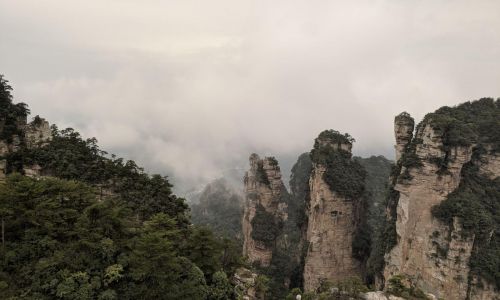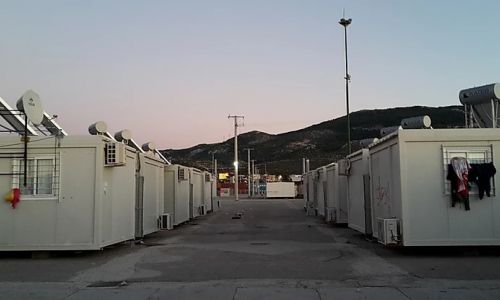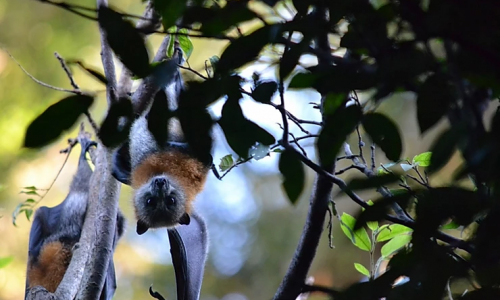Pastoralism and Climate Vulnerability: Insights from the Pulikulam Cattle Community
After intercalating in sociology and criminology during her veterinary degree, Sinthu Devkumar was inspired to pair her veterinary training with environmental justice and interdisciplinary research. In this guest blog, she shares insights from her final year study exploring the impacts of climate change on the Pulikulam Cattle Community in Tamil Nadu, India.
Sinthu Devkumar
What is Pastoralism?
Pastoralism is a traditional and non-intensive system of animal husbandry. As a practice, pastoralism relies upon public grazing lands and natural resources, contrasting with the privately owned land, manufactured feed, and pipeline water supplies characteristic of commercial agriculture. Pastoralism is widely practiced across the globe, from the rearing of goats in Kenya to camelids in the Andes, varying in relation to local climates and landscapes.
The Pulikulam cattle herders, located in Tamil Nadu, rear the locally native breed of Pulikulam cattle, and are one of many pastoralist communities in India. These cattle are not reared for milk or meat production. In fact, manure production functions as the primary means of income generation, for use as agricultural fertiliser. It is estimated that there are roughly 750 Pulikulam cattle herders in Madurai with a total of 90,000 Pulikulam cattle, averaging out to 150-400 animals per herd.
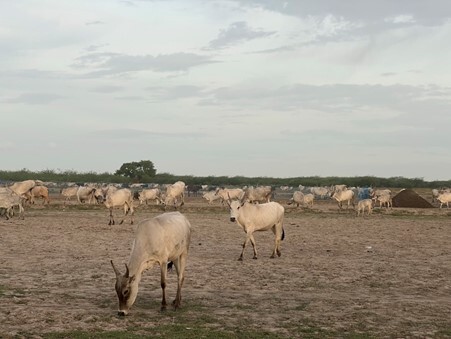
Climate Change as a Threat to Pastoralist Communities and Herds
The Pulikulam cattle community is largely dependent on the availability of grazing and water for the productivity and health of their herd. Herds may be reared on drylands – areas of high temperature and low rainfall, with manure collected and processed later for sale. Drylands are especially vulnerable to climate change, due to accelerated desertification, posing the threat of feed shortages for pastoralist communities in these areas. Changes in rainfall, atmospheric CO2, temperatures, and the frequency of natural disasters all influence pasture availability, livestock nutrition and household income.
"Drylands are especially vulnerable to climate change, due to accelerated desertification, posing the threat of feed shortages for pastoralist communities in these areas."
Ironically, these challenges are further compounded by short-sighted climate initiatives. Such efforts fail to recognise the reciprocal relationship of pastoralists and the natural environment, and further reduce the availability of grazing. This includes the institution of the Forest Rights Act 2006, restricting grazing access under the premise of wildlife conservation, increasing urbanisation of rural areas and other development projects, including for alternative energies.
Climate instability is also likely to shift the epidemiology of vector-borne diseases (including zoonoses), raising concerns for both animal and human health. Disease incidence is generally low amongst Pulikulam cattle, although herders have observed an increase in hoof infections of their livestock – or ‘kaadai’, during monsoon. Herders tend to favour traditional medicine for managing livestock health, as opposed to veterinary pharmaceuticals, to include neem oil, water blessed by Amman (the Hindu goddess of rain) at nearby temples and soaked dried fish.
Veterinary care is rarely sought, as herders report logistical difficulties and previous experiences of veterinarians being reluctant to approach their cattle, culminating in a lack of veterinarian-herder trust. As climate change alters the epidemiological pressures on pastoralist herds, widening veterinary access and expanding veterinary training is likely to become more important. It is also essential that such healthcare delivery is sensitive to the cultural practices of these communities, allowing for a co-produced and collaborative approach to understanding and protecting animal health and welfare.
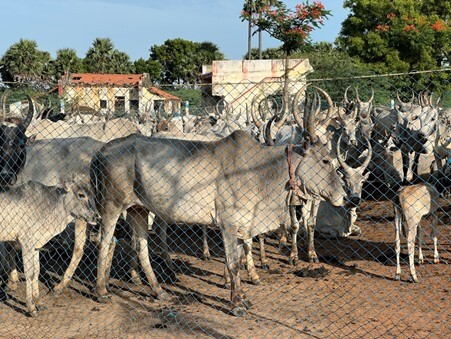
Key take-aways
Climate change disproportionately affects those most vulnerable in society, across local, national and global communities. Pastoralists – as people intimately connected with the natural environment, are especially at risk. The Pulikulam cattle community are already experiencing climatic stress in the form of erratic patterns of drought, rainfall, and lightning events, endangering the health of both herd and herders, as well as their adaptational capacities. The resulting strain on herd productivity and livelihood has also led to cultural erosion, with many younger herders abandoning pastoralism in pursuit of salaried employment.
It is important to recognise that global environmental change is not the sole threat to pastoralism practice; climate change is only a multiplier of their existing socioeconomic vulnerability. Historical inequalities, tracing back to British rule, have resulted in various institutional barriers to resource access and climate adaptation, including a lack of political recognition, poor government and veterinary support, and reduced socioeconomic mobility. Support for pastoralist communities, not limited to the Pulikulam cattle herders, is therefore an environmental, animal and human rights issue.
"Support for pastoralist communities, not limited to the Pulikulam cattle herders, is...an environmental, animal and human rights issue."
A global effort needs to be made not only in mitigating and reversing the trends of climate change, but also in addressing the socio-structural barriers in place that hinder the empowerment and mobility of pastoralists. This requires institutionalising a political recognition of pastoralist territorial rights, fostering opportunities for income diversification, and encouraging pastoralism as a sustainable agricultural practice.
Additionally, government-funded provisions (e.g. shelter for cases of extreme weather), and improvements in current approaches to and capacities of veterinary care will prove essential for protecting the health of these communities and their livestock. International governance frameworks, such as the Sustainable Development Goals, must also move to highlight the challenges faced by pastoralist communities to achieve a truly vulnerability-oriented and just pathway for global climate progress.
